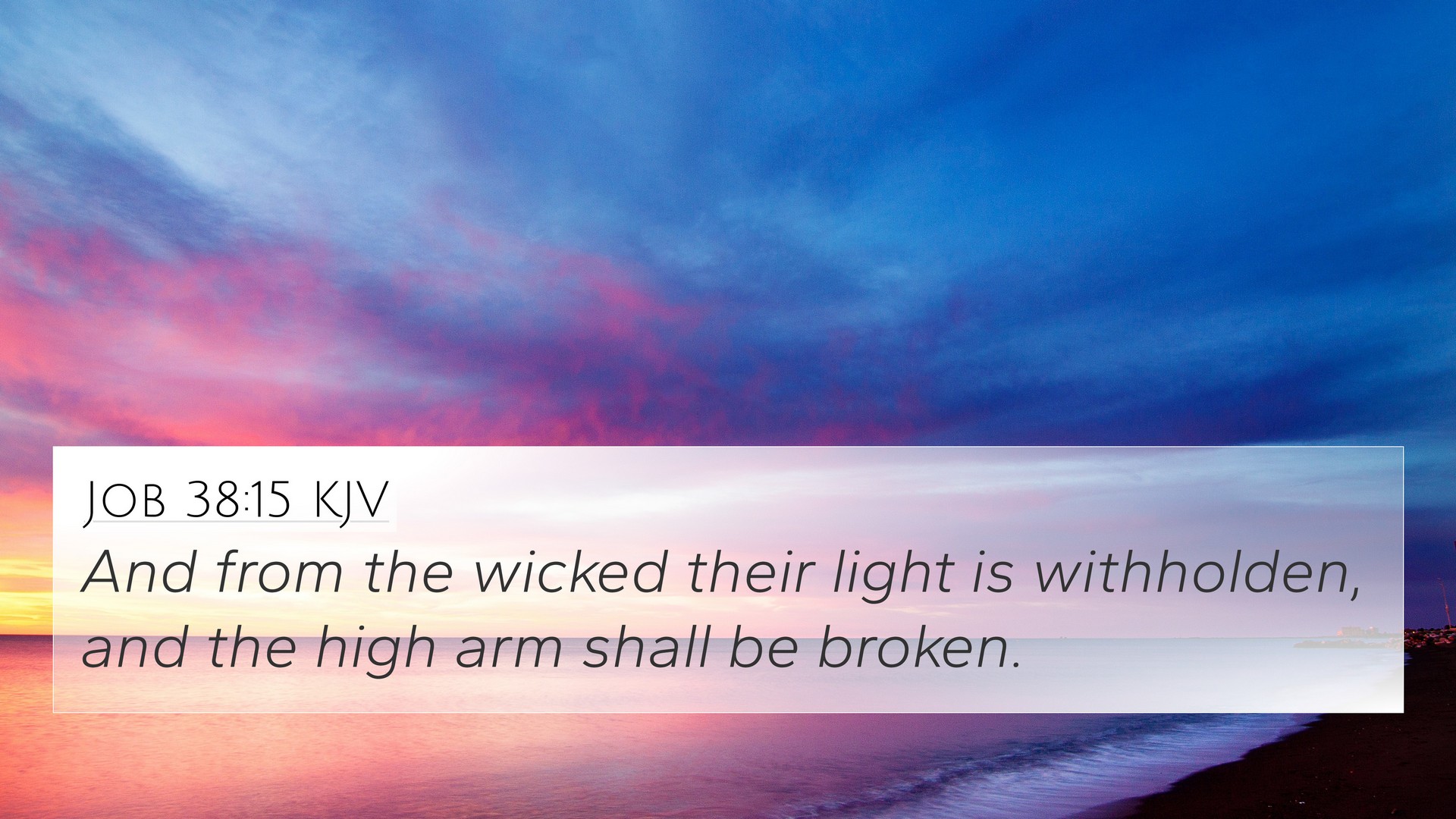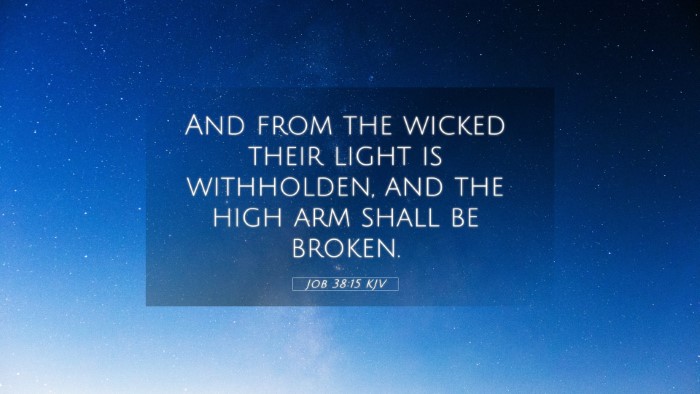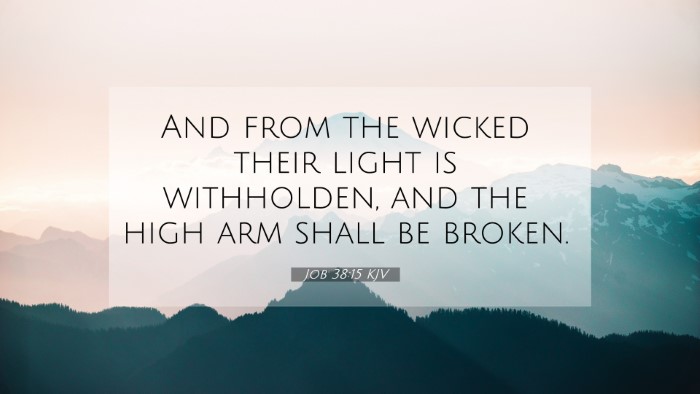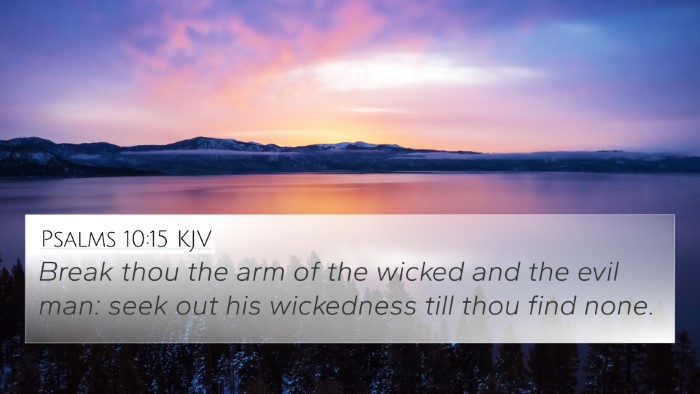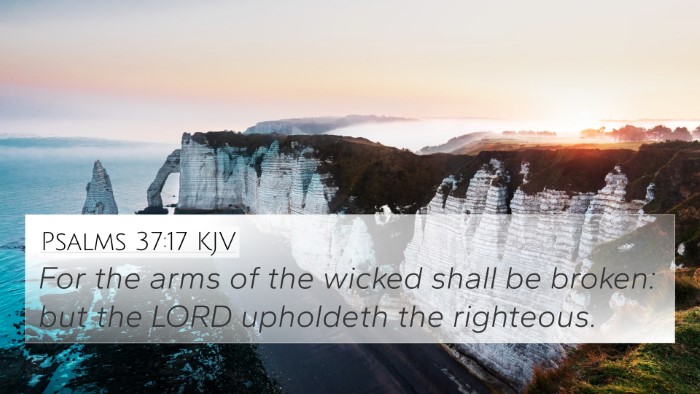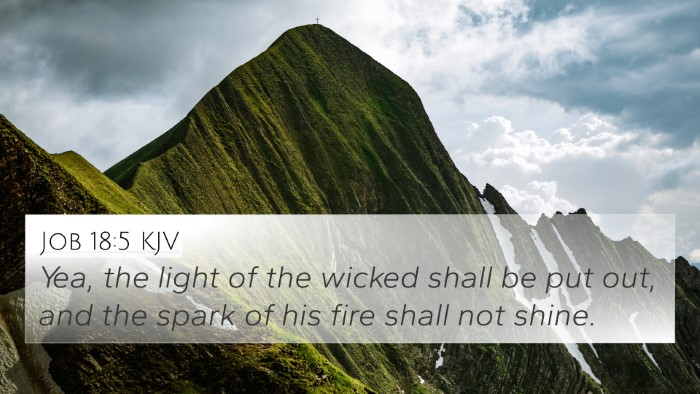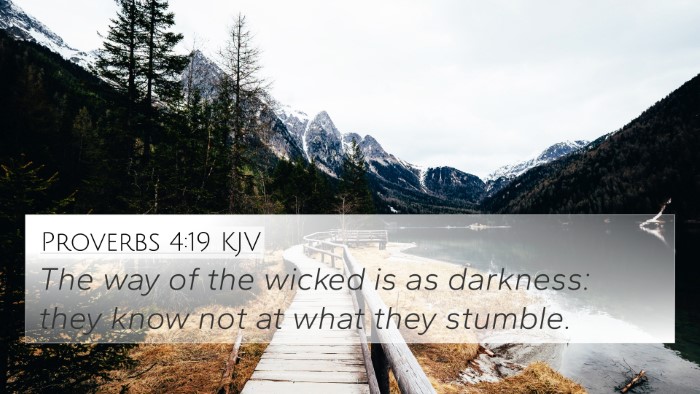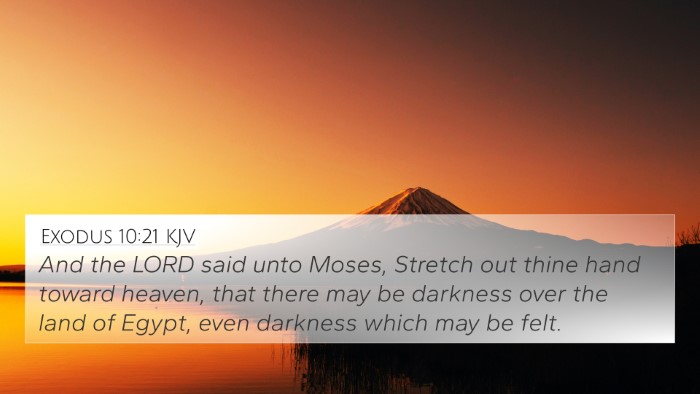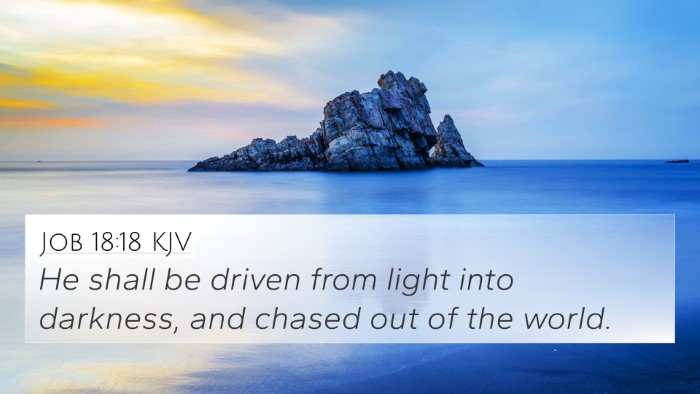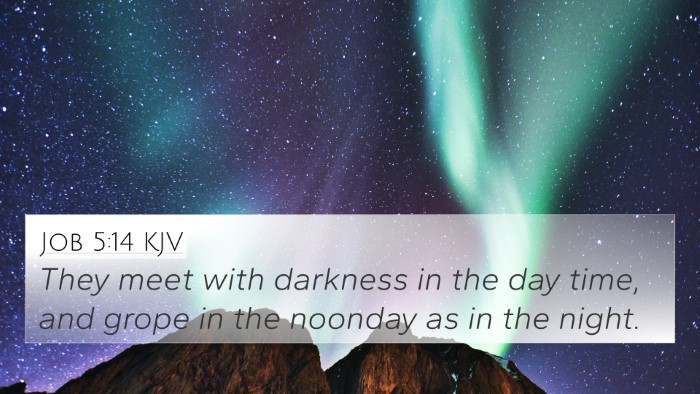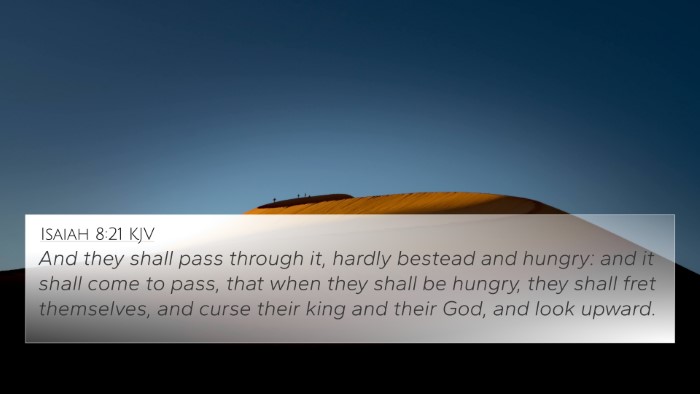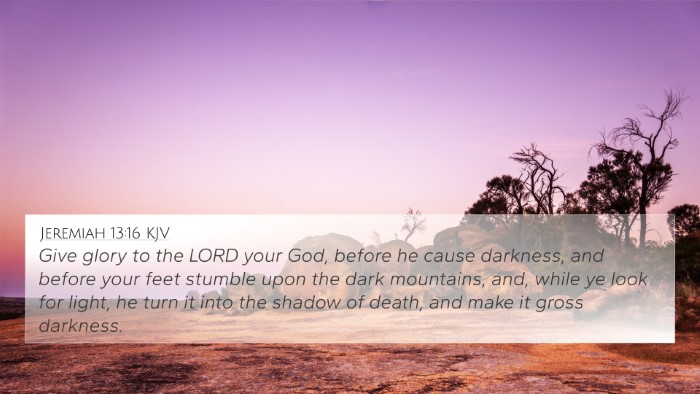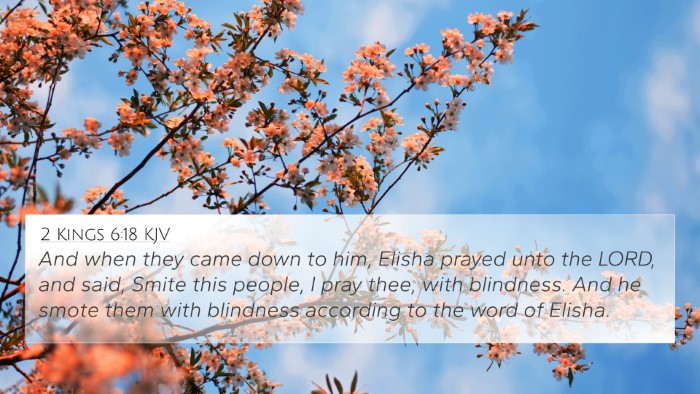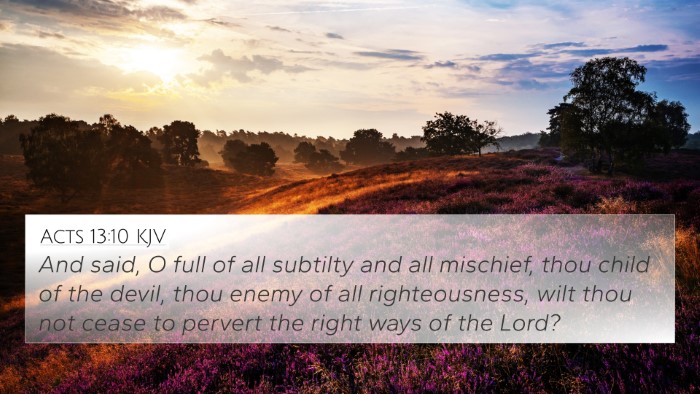Understanding Job 38:15
Job 38:15 states: "And from the wicked their light is withheld, and the uplifted arm is broken." This verse is part of a larger discourse where God responds to Job's questions and frustrations. It addresses the themes of divine justice and the consequences of wickedness.
Verse Meaning Overview
This verse emphasizes the idea that the wicked are deprived of light, which can be seen symbolically as knowledge, guidance, and hope. The 'uplifted arm' suggests both strength and the ability to act, implying that the wicked's power is curtailed. This aligns with God's authority and the moral order of the universe.
Commentary Insights
Matthew Henry's Commentary
Matthew Henry notes that, in this verse, God reveals the profound truth that the unrighteous are hindered from seeing the truth and experiencing the blessings of His presence. The light symbolizes enlightenment and understanding, which the wicked deliberately forsake. This brings forth the idea that their actions lead to their own downfall.
Albert Barnes' Commentary
Albert Barnes adds that the 'light' here may represent both physical illumination and spiritual insight. The withholding of light signifies the absence of divine favor, which results in darkness—a metaphor for confusion, despair, and the inability to discern moral truth.
Adam Clarke's Commentary
Adam Clarke discusses the metaphor of the 'uplifted arm,' connecting it to the strength and might of human capability. When God intervenes, the strong arm of the wicked is rendered impotent, thereby asserting the sovereignty of God over human affairs.
Thematic Connections
Job 38:15 can be compared and contrasted with other scripture passages that echo similar themes of light versus darkness and divine justice.
Bible Cross-References:
- Psalm 27:1: "The Lord is my light and my salvation; whom shall I fear?" - This verse underscores God's role as a guiding light for the righteous.
- Isaiah 50:10: "Who among you fears the Lord and obeys the word of his servant? Let the one who walks in the dark, who has no light, trust in the name of the Lord and rely on their God." - Relates to the theme of trusting in God even amidst darkness.
- John 1:5: "The light shines in the darkness, and the darkness has not overcome it." - Reiterates the supremacy of divine light over evil.
- Romans 1:18: "For the wrath of God is revealed from heaven against all ungodliness and unrighteousness of men, who suppress the truth in unrighteousness." - Connects with the consequences of wickedness as mentioned in Job.
- 1 John 1:6-7: "If we say we have fellowship with him while we walk in darkness, we lie and do not practice the truth." - Directly speaks to living in light versus darkness.
- Proverbs 2:13: "Who forsake the paths of uprightness to walk in the ways of darkness." - Highlights the voluntary choice of the wicked to step away from righteousness.
- Matthew 5:14: "You are the light of the world. A city set on a hill cannot be hidden." - Emphasizes the call of the righteous to carry the light amid an often dark world.
- Ephesians 5:8: "For you were once darkness, but now you are light in the Lord. Walk as children of light." - Encouragement for believers to live in accordance with the light of Christ.
- Isaiah 58:10: "If you spend yourselves in behalf of the hungry and satisfy the needs of the oppressed, then your light will rise in the darkness, and your night will become like the noon day." - A promise that light comes from righteousness and justice.
Tools for Cross-Referencing
For deeper insight into the connections between Bible verses, various tools can assist in cross-referencing:
- Bible Concordance: A useful reference tool for locating verses based on keywords.
- Bible Cross-Reference Guide: Guides to help readers find related verses and themes across scriptures.
- Bible Reference Resources: Various online and print resources designed for detailed cross-reference studies.
- Cross-reference Bible Study Methods: Strategies for effectively studying the interconnections of biblical texts.
Conclusion
Job 38:15 serves as a profound reminder of the divine order and moral implications of human choices. By understanding this verse in the context of scripture and through the insights of knowledgeable commentators, we can better grasp the significance of light and justice in God’s governance of the universe.
